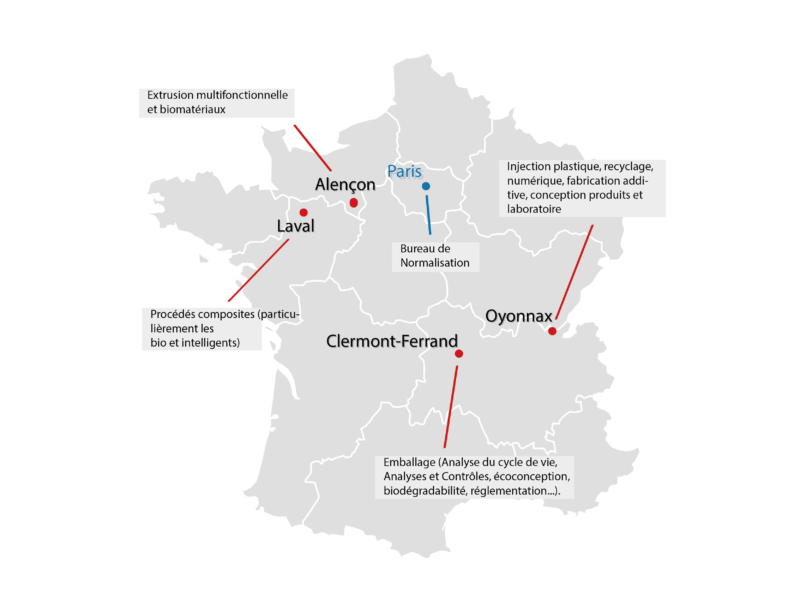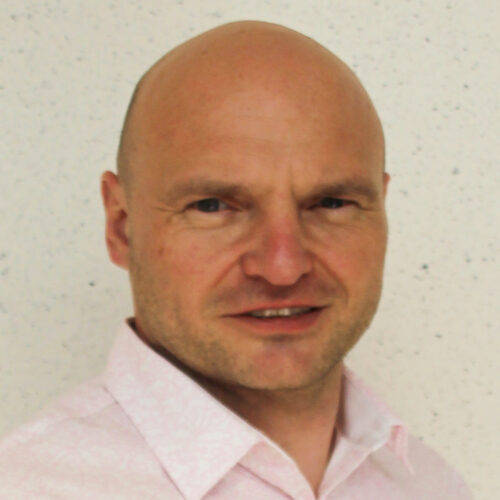IPC est officiellement créé. Tout est à construire : IPC doit convaincre chaque entité indépendante et parfois de très petite taille de rejoindre l'aventure.
IPC > About IPC

IPC plays a major role in facilitating plastic and composite innovation in France. We help to improve the industry’s competitiveness through R&D projects focusing on the circular economy, the industry of the future and high-added-value products. In coordination with plastics industry federations and in partnership with competitiveness clusters, academia and researchers, we are the link between small and medium-sized enterprises (SMEs) right across France and the high-level innovation and transformation challenges that are the topics of conversation at national and even European level.
In addition to our “usual” activities, we are being called upon to step up the support we provide to businesses, in particular by contributing to the “France Relance” plan, to help SMEs identify and apply for government support programmes their projects are eligible for.
We keep the sector updated on topics and solutions where they have room for improvement to meet market expectations. When IPC was founded, the priority was to integrate electronics, and we set up a dedicated platform for this. Since 2018, environmental issues have come to the fore, and in particular the circular economy, biomaterials and recycling. We pre-empted this in 2016, when we launched the DIS30 platform, focusing part of our research on our “Ambition for a Sustainable Plastics Industry by 2030”. The aim was to develop plastics with a focus on maximising consumer safety and minimising their carbon footprint.
This starts by keeping a finger on the pulse of what manufacturers want. We work to offer them the services they need, when they need them. First, we go out to meet manufacturers. We take an industry-centric approach to everything we do, from R&D to technology transfer, training and communication to equipping ourselves with the tools the sector requires. We adapt our programmes and actions to what small and micro-businesses say they need. “Market” committees of professionals become “industry workshops” that go beyond a product-based approach. It is thanks to this constant focus on adaptation that IPC enjoys industry-wide recognition.
Our agility means we have the ability to restructure our organisation and change rapidly, to reassess and adjust our priorities. It’s about providing a return on investment that meets the expectations of industry players, who become involved in the projects we run. It’s about setting up research programmes with 320 partner organisations. It’s about promoting an “innovation instinct” in the businesses that need them, regardless of their size. And it’s about putting medium-sized, small and micro businesses in a position to win European contracts, by supporting them as they enter unfamiliar territory. And lastly, it’s our ability to pick up a topic or programme mid-year, with a genuine commitment to helping businesses progress.

Our main focus is on creating an industrial research centre that serves manufacturers. We harness our financial, technological and human resources to drive progress in many areas, such as packaging safety, LCA, recycling, digital technology, intelligent plastics and standardisation.
Over time, we have restructured IPC to meet the industry’s needs. We’ve reorganised our operations by focusing each of our sites on a small number of fields, to limit duplication and encourage the pooling of resources.
We needed a structure that was better equipped to support our strategy of focusing our activities on major key areas.
In the medium term, IPC is working on a General Research Plan (GRP) to prepare the future of the plastics industry. We published our first GRP in 2016. It is a document laying out the resources and skills which we will bring to bear to support manufacturers (generally micro- and small businesses rather than medium-sized organisations, which have greater resources enabling them to set out a more long-term view of their future).
The GRP is written by IPC’s strategic and scientific steering committee. It begins with a survey of current needs, based on the findings of workshops held with manufacturers from the sector.
Since 2019, IPC’s roadmap has focused on three specific themes to meet the industry’s expectations and comply with the French government’s environmental policy.
The circular economy: with a view to designing plastic parts and composites that include recycled or bio-based materials, while facilitating the recycling of products at end of life.
The industry of the future: to develop technologies that will improve competitiveness, with a focus on “zero defects” and “zero energy consumption”.
High-added-value products: to produce smart products.

“Over the last five years, we have put a great deal of work into defining IPC’s purpose and values: how we will move forward together. It really is the people, and an ability to work together despite our differences, which make this type of centre successful.”
IPC est officiellement créé. Tout est à construire : IPC doit convaincre chaque entité indépendante et parfois de très petite taille de rejoindre l'aventure.
Création de la plateforme HYPROD² pour le développement de l'axe Industrie du Futur.
ISPA-E intègre IPC et devient IPC Alençon. IPC compte 120 collaborateurs en France, répartis sur 4 sites : IPC Chambéry, IPC Laval, IPC Oyonnax et IPC Alençon.
Création de la plateforme PRINTER pour le développement de l'axe Produits à Haute Valeur Ajoutée.
Le CEMCAT devient IPC Laval et simplifie l'accès aux industriels des composites.
Création de la plateforme DIS30 pour le développement de l'axe Economie Circulaire.
3S’inPACK, l’expert du « couple » produit-emballage, rejoint IPC. Ses compétences vont permettre de développer l’activité des plastiques en toute sécurité.
IPC ouvre une antenne sur le plateau de Sainte-Sigolène (Haute-Loire) avec une expertise extrusion et films.
Signature du partenariat entre IPC et le Cotrep (Centre de ressources et d’expertise sur la recyclabilité des emballages ménagers en plastiques en France).
Signature du COP (Contrat d’Objectifs et de Performance).
Mise en place de la CITE3R pour aider les industriels dans leur transition vers l'Economie Circulaire